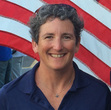Carol Newman Cronin's Blog, page 62
December 20, 2011
2011 Holiday Book Recommendations
Here's my annual list of suggestions for holiday (or anytime) books. The theme here is my favorite genre: history interwoven with the present day.
Each book is available in a variety of formats, including print and ebook, from a variety of sources. I've included a link for more information, to showcase the range of online options. And when you're ready to buy, don't forget your local independent bookstore. 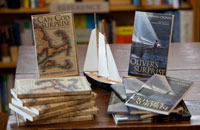
The Forgotten Garden by Kate Morton
This amazingly crafted story spans three generations, all tied up with a neat bow. Morton carries us from Australia to England on the back of her strong prose. I bought it as a birthday present for my sister, who rarely has time to read for pleasure anymore. Hopefully this will be worth the distraction for her.
The Winter Sea by Susanna Kearsley
Kearsley's mix of history and present day was so engrossing I went back to read it a second time, thinking I would analyze her craft… and found myself caught up in the story all over again.
The Widow's War by Sally Gunning
Gunning's first story of colonial Satucket on Cape Cod centers around the Widow Berry, who after her husband's death at sea rebels against the transfer of her property to her nearest male relative, an overbearing son-in-law. Best of all, there are two more books to enjoy when you finish: Bound and The Rebellion of Jane Clarke. http://sallygunning.com/books.html
Those Who Save Us by Jenna Blum
An amazing story of mother, daughter, and how history continues to affect the present day even when it's suppressed. The ending might surprise, but the smooth prose is a comfort throughout.
The Day the Falls Stood Still by Cathy Marie Buchanan
Set against the constant roar of Niagara Falls, this novel tells the story of a family whose fortunes unexpectedly fall apart—and the unexpected love affair that saves them.
A Long, Long Time Ago and Essentially True by Brigid Pasulka
I was induced to buy this book by the title. Fortunately the story —a mix of history and modernity through the eyes of a granddaughter who returns to her grandmother's native Poland—lived up to my high expectations.
As for this year's gift giving, it's going to be another book holiday for my family members. Luckily my nieces and nephews are all big readers, and most of them are old enough to be breaking into the adult genres. A few highlights:
My oldest niece will hopefully enjoy the first Elizabeth George title, A Great Deliverance. She loves mysteries but had never heard of George, my favorite author in that crowded genre. She will also hopefully let me know what she thinks of Death Comes to Pemberly, the latest from P.D. James.
My dad will enjoy looking through Herb McCormick's latest book, One Island, One Ocean, a story of the thirteen month circumnavigation of the Americas. And I'm hoping to take a glance at the book after him.
The best present is a secret. I'll let you know next week how it is received.
Merry Christmas and Happy Hanukkah to all. It's a great time of year to share the joy of reading!
December 17, 2011
US Sailing Names Seven Sailors to 2012 Olympic Team
I cover Olympic sailing on Boats.com's blog, where this post appears in full. Here's a teaser…
Although the final regatta of the US Olympic Trials is still going on, seven sailors have already been named to the US Olympic Team. Best of all, most qualified the USA at the same time.

Erik Storck and Trevor Moore thread their way through the 49er fleet. The duo has just qualified the USA for the 2012 Olympics.
Here's how it works: the top US sailor at two Trials events is selected for the 2012 Games. But except for host Britain, countries must also qualify, which requires placing in the top 75 percent of countries in each discipline at Perth 2011. The numbers vary for each class, but the pressure is the same: sailors named to the Olympic Team don't get to go if they can't earn a country slot.
Brother and sister duo Zach and Paige Railey will be going to the Olympics together in the Finn and Laser Radial, thanks to a ninth and third overall in their respective classes. Zach won a silver medal at the 2008 Games; 2012 will be the first Olympic event for his sister. "I think the excitement of winning a bronze in the medal race is all over and it's starting to sink in that my brother and I are going to the Olympics. It's pretty exciting," said Paige after finishing up her regatta in Perth.
Read the full post on the
December 9, 2011
Game of Sails: Last Chance to Buy at $2.99
Calling all bargain hunters: the price of Game of Sails: an Olympic Love Story is increasing to $4.99 on Jan 1, 2012. You must order soon to get the book at its introductory price.
There are three main reasons for this price increase.
1. I've received a lot of feedback that "I would've paid more" for this book.
2. I want to delineate this book from the many ebooks available at the $2.99 price, many of which are not as carefully edited or formatted.
3. The new price of $4.99 brings Game of Sails into line with the ebook prices for Oliver's Surprise and Cape Cod Surprise.
For those of you who want more information about ebook pricing, I can recommend What is the Best Price for E-Books? on The Passive Voice. I learn something from every post on this excellent and entertaining blog; this time I learned that the right price for an ebook may change over its life.
Also, for those of you looking to personalize a gift copy, I'd be happy to "sign" your ebook thanks to Kindlegraph. This is a great service which is getting more user friendly every week.
I believe the time has come to raise the price on Game of Sails, though only time will prove me right or wrong. Let me know if you agree with my reasoning… or better yet, take advantage of this last chance to buy at the introductory price, and download your copy now!
December 1, 2011
Airplane Sales: Ebooks Promotion
I've been on a lot of airplanes since Game of Sails first came out in early July, traveling for both work and sailing. And on most of those flights, my seat companion has pulled out a Kindle or a Nook as soon as we were above 10,000 feet.
"Like your ereader?" I ask. (I have trouble telling the difference between the brands.)
"I love it," the seat mate gushes. And that simple exchange usually leads to a great discussion about favorite books, authors, and the joys and trials of ereaders (so easy and nondescript to carry, so frustrating to turn off in the middle of a chapter for take off and landing).
 Almost always, this conversation gives me an opening to pull out my best ebook sales tool: a business card with the cover graphic on one side and a QR code on the other that leads directly to the Amazon and Nook download pages for Game of Sails.
Almost always, this conversation gives me an opening to pull out my best ebook sales tool: a business card with the cover graphic on one side and a QR code on the other that leads directly to the Amazon and Nook download pages for Game of Sails.
"I'll buy it as soon as we land!" is the most common response.
Now none of these folks are sailors, though many have a passing interest in the sea. So why (frankly) would they be eager to buy an Olympic love story about sailing from someone they happened to meet on an airplane?
The reason is that at $2.99 (with a free preview), there's no need for anyone to think twice about checking out my latest book. And the business card makes it easy for an airplane companion to remember my name (and the book's name) after we part ways.
Another reason it's easy to sell ebooks while traveling is that an ereader weighs the same no matter how many books it includes. I have not (yet) sold a hard copy of Oliver's Surprise or Cape Cod Surprise on an airplane—although I've given out quite a few bookmarks. Nobody on a plane wants one more thing to carry—even a thin paperback. And $9.95 may be a great price for an entertaining read, but it's above the impulse buying limit for most people seated in coach.
What I'm learning is that there is no one right way to promote an ebook. As DE Karlson recently tweeted, "There are 3 rules to successfully sell e-books, unfortunately no one knows what they are."
So until someone figures out those rules, I'm gonna keep handing out my business cards. Even if my next seat mate doesn't buy my book, at least our conversation will make the flight go by quicker.
This post first appeared on Write on the Water, a site for those who want to "quit your job, move onto a boat, and write." And I wrote the first draft on an airplane.
November 22, 2011
Perhaps This is Fiction
As a grateful offering to all of you, I'm sharing a new story this week. I leave it to you to decide: If a mast falls in a crowded marina, is it truth or fiction?
Enjoy, and have a great holiday.
Perhaps: the Story of a Fallen Mast
Perhaps you carry your toolbag down to the marina on a perfect Cape Cod July morning, your right fingers curled around the familiar canvas handles. The bag's weight is counterbalanced by a large circle of wire hanging in the crease of your left shoulder. When the wire is uncoiled, it will become, you hope, a perfect-length headstay.
Perhaps you wish to be playing hooky on this shimmery Friday. Out on the water in your own boat, on your own time, instead of fixing the mistakes of a customer who couldn't avoid running into a bridge last weekend. A customer who absolutely has to go sailing again tomorrow, who will pay extra to make that happen.
Perhaps you climb aboard the sailboat without any sense of doom, thinking only of the tools you need to carry aloft with you.
Perhaps you step through the triangle of bosun's chair, settle onto the wood seat, nod to the assistant who hoists you skyward. Your destination: forty feet off the deck, the very top of this shiny mast.
Perhaps you admire the muscular tan of your forearms as they pull you up, up, up, to where backstay and shrouds attach, to where that spare halyard leads down to the deck holding the mast forward, until you can replace it with the hopefully perfect-length headstay now dangling beneath you.
Perhaps you wrap your legs around the thick aluminum tube, gripping it as tight as last night when you wrapped your arms around a woman you think you might marry. Before you reach beneath the chair to grab the dangling wire, you get a quick thumbs up from the guy on deck who has tied off your halyard.
Perhaps you place a fresh stainless cotter pin between your lips as if it were a cold metallic cigarette, so it will be handy when you need it.
Perhaps you have already lined up the headstay with the mast tang—ready to drop the clevis pin into place—when a small boat wake washes through the marina, tugging the boat against her dock lines.
Perhaps you feel the mast shift, and grip it tighter with your thighs and ankles.
Perhaps the temporary halyard tying the mast forward has stretched overnight. Just a little, but just enough.
Perhaps the mast ends at the deck, in a round step that will not restrict the long thin section once it starts to move away from vertical.
Perhaps as you clutch the mast so safe and secure with your strong legs, it falls.
Perhaps most of you lands not on the long wooden hard dock you'd walked down, and not on the equally hard finger pier at right angles to it, and not on the hard fiberglass deck of the boat tied up in the slip across the dock—but in the tiny triangle of water in between all three.
Perhaps the owner of that neighbor boat is ready with his knife to cut you free from the tangled web of lines. And then somehow this tiny man finds the strength to drag your dripping-wet body out of the water and onto the finger pier.
Perhaps another man you'll never meet again happens to be walking along the harbor, carrying nothing but his combat experience. He stops just long enough to casually stuff a rag into the hole in your head where it hit the dock railing.
Perhaps your assistant, the one who pulled you up the mast, continues CPR long after everyone else gives you up as dead, until the ambulance arrives.
Perhaps a helicopter flies you straight and true to a head trauma center, without waiting for your insurance information. But that same helicopter pauses long enough to scoop up a woman calling herself your wife.
Perhaps a sharp-eyed X-ray technician spots the strange dark line balanced on the top of your lung, and convinces the doctors to fish out that stainless cotter pin you'd gasped in just as you started to fall.
Perhaps you wake up, wondering how you came to be in this falsely lit, white and sterile room. Wondering why the back of your head feels dented. Wondering what day it is.
Perhaps the woman you will marry is the first thing you see, and she takes your hand and explains everything you don't remember.
Perhaps the hole in your head, which hurts like hell, closes up, leaving behind a nasty scar that will never grow hair again.
Perhaps you just don't care about a slightly lazy eye that the docs say will improve with therapy.
Perhaps you go back to work.
Perhaps you marry, bring up two boys and two girls. Enjoy another forty summers of bright July days.
And perhaps—
You will never, ever, EVER, climb another mast.
November 17, 2011
Pulling the Landline Plug
Yesterday, I finally stopped procrastinating and cut the cord.
I barely used the landline phone anymore. The cheap handset was like a childhood friend gone to seed; we no longer had anything in common.
Nine months ago, I'd started saying "I should get rid of my landline." Everyone agreed it was a good idea.
But I kept putting it off, choosing instead to analyze the problem. I started a log to see how many times I actually received a call from a real live person I wanted to talk to: maybe once a week. And those people could easily be retrained to use my mobile phone. No excuse there.
Every time I got an automated call ("This is not a sales call, do NOT hang up") I would slam the phone down in disgust. Lacking caller ID, I basically stopped answering the thing except during business hours. (I had, after all, given it out as an office number.)
And still I couldn't bring myself to actually cancel the service. I'd had the same number for sixteen years, after all. It was on my business card. I used it for faxing… even though most people now prefer a PDF attachment. And local calls were free—well, except for that monthly service charge.
Yesterday's automated call (right before lunch: "This is a very important message") was the final straw. Before I could overthink or analyze anymore, I picked up the phone (the landline, ironically) and called Verizon. Enough, I said. Cancel my service.
"Would reducing your monthly fee make you change your mind?" I was asked.
"Not unless you reduce it all the way to free."
Since that wasn't an option, the service was cancelled. The next time I thought to pick up the handset, the dial tone had disappeared.
This morning, I found myself reaching for an empty spot on the desk where the handset had been, a habit that will take a while to break. In a day or a week or a month, this will all seem like something I should've done years ago. And it will certainly be nice to eliminate one bill from the monthly pile on my desk.
But I'm a little sad today.
By the way, does anyone need a perfectly good landline handset? Available free, but only to a good home…
November 9, 2011
Labels, Float Plans, and Writer's Block
Consciously or not, accurately or not, we all label ourselves. Like stickers on a well-traveled suitcase, labels help us announce our achievements to the outside world: Olympic Sailor. Boat Owner. Writer. Editor. New Englander.
When I received the first royalty check for my third book, Game of Sails: An Olympic Love Story, I added a new label to my persona: Professional Author. That's a big step up from Writer. It tells the world (and me) that I'm more than a one-hit wonder.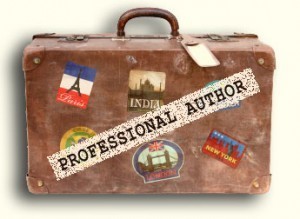
What I didn't realize is that such a serious self-label would also demand a change in my writing habits. You see, before they start writing, Professional Authors make an Outline. They file a literary float plan that announces the route, schedule, and intended destination of their next story to the outside world.
I know, I know, not everyone works that way. But now that I'd dubbed myself a Professional Author, I figured I'd better outline the next book. I couldn't just sit down and start writing—that would be so unprofessional!
I also figured it would be more efficient to know where we were headed. Writing had always meant following my characters down meandering creeks that diverged from the main channel, typing furiously just to keep up. On slow days I would prod my characters to "do something," because I really wanted to know what happened next.
Somehow they always led me to the end of the story. And then I'd go back and delete all the dead end meanders so the final chapter seemed obvious.
This time, I'd start with an outline. How hard could it be? I had all the necessary tools right at my fingertips. Scrivener placed a corkboard full of index cards right on my screen, ready to be filled in with plot points. Best of all, doubleclicking on each index card brought up a clean white sheet of "paper" where I could add any details—or even jot down the bare bones of a scene. When I found a web page or photo I wanted to save with the project, I added it to the research folder on the fly. What a great piece of software.
When I needed another look at the big picture, MindNode provided a non-linear approach to brainstorming. And researching a location or particular era was easy, thanks to web searches and the local library.
Over a few months, I managed to come up with rough draft of an outline, my story's float plan. I could smell the salt air and hear the voices of the main characters, so I figured I'd reward myself by pushing off from shore—writing down scene one.
And that's when my story drifted onto the rocks.
As soon as I introduced him, Character #1 veered off from the main channel and headed down a meandering dead end creek. Hmm.
Determined to stick to the Plot, I dragged him back onto the page to meet Character #2. When she trounced off in a huff (instead of beginning the pivotal conversation that would set up the next scene), I threw up my hands in frustration. It was a battle of wills, and these two figments of my imagination were winning.
I've spent the past two weeks away from my writing, and sometime during that break I came to a decision: no more plotting. No matter how efficient it might seem or what I call myself, outlining obviously doesn't work for me.
So if your own float plan takes you down a meandering creek some day soon, and you happen to see an Olympic Sailor/Writer/Editor/Professional Author aground in the marsh—don't worry. I'm just following my characters. And eventually, they will lead me back to deep water.
October 14, 2011
Weaning Myself off The Winter Sea: a Backhanded Book Recommendation
Recently (thanks to a weather delay) I had some extra time to browse in the New York Times Bookstore at the Providence airport. If I'd been rushing, I would've missed The Winter Sea by Susanna Kearsley; the book was spine-out and the cover too gothic for my usual reading tastes. But the word "sea" caught my eye, and once I read the premise (historical novel bound up with present day writer's story), I was intrigued enough to buy it.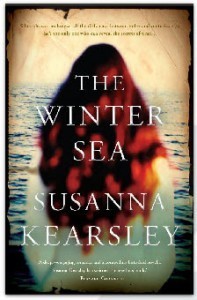
I'm not too particular about my airplane reading, but I got so lost in this thick book that I even forgot to nap on the long flight to California. By the time the wheels touched down, I'd figured out the "surprise ending" promised by one reviewer—not knowing that yet another surprise had been layered into the final pages. With fresh writing, more than a sprinkle of romance, and a tangled thread weaving past to present, this books is one of the best I've read all year.
But now I have a problem. Kearsley's characters have crossed over the line in my brain that separates reader from writer.
I've been digging into my next project—which is at present no more than a bunch of seemingly unrelated ideas. I've got a main character, though he keeps trying to work his way out of the limelight. I've got a girlfriend obsessed with her ancestors, even though those ancestors can't seem to lock into a country of origin. I've got a box, though I'm not sure what's in it, and I've got a problem to solve. All I need is the right "hurricane" to stir it all together.
Searching for inspiration, my thoughts turned back to The Winter Sea. A historical novel binding together past and present—just what I'm trying to write. So I figured I'd reread it, to see how someone else got the job done.
Calling it research, I sat down to read again. I forced myself to step back from the onrush of "what happens next" to study the details— how they oh so casually piled up to create an impression of character, place, and time.
It was a lovely escape. Until I realized that my writerly daydreaming was focused on Kearsley's characters instead of my own.
I'm not writing about eighteenth century Scotland (though I'd really like to visit someday). And I'm not writing about a writer, though I will recommend this book to the next person who asks me, "Where do you get your ideas?" The main character, Carrie, answers that question better than I ever could:
"The main ideas for my novels never struck me like a lightning bolt. They formed themselves in stages, like a snowball packed in layers, with clumps padded on here and lumps scraped away there, till the whole thing was rounded and perfect. But by then, I could no longer see the shape of htat first handful I'd scooped up, that first small thought that had begun the process."
Now I find my own snowball has been melted away by my reading. I need to struggle with my own ideas right now, not bask in the seemingly effortless word choices of another.
So I've made a vow: No more Kearsley (though she has a mouth-watering backlist) until I know how my own story ends.
For so many reasons, I pray that knowledge will come soon.
September 8, 2011
Yes, Dear: Listening to My Characters
It's so easy to forget how hard it is to create. Once the building blocks are in place and the story's on the page, once I know (at least in a rough drafty way) what's going to happen next, it all seems so obvious.
Now that I'm struggling with a new story and a new main character, I remember: this is hard work.
Of the writer's three hats, I haven't worn the first one (the creative hard hat) in over a year. I'm starting from scratch again, so it's time to glue it back on my head and get back to what makes all the rest (editing, marketing, sales, sharing my story) possible. It's time to write the next story.
It was a busy summer of racing, including two back to back international competitions in Denmark and here in the US. Since June I've secretly looked forward to September; longer nights, cooler days, and most importantly a span of multiple weeks at my desk. I was itching to dive into the next project, to get to know that new character who kept tugging at my semi-conscious.
And now September is here, and her story isn't writing itself.
It doesn't help that I've also been fantasizing about a personal conversion from seat of the pants writer to outliner, which would be way more efficient. (Authoress Anonymous, I've been jealously admiring your progress.)
But outlining seems to scare my characters away. They like to creep into the shadows of the page; they're what happens when I'm making other plans. Like Oliver and Casey, there's no easy, efficient way to get this one to show her face—I just have to keep adding those blocks of words to my sculpture and hope eventually she will be chiseled into clarity.
Now I remember why there are always passages in my first drafts where nothing really happens; it's because sometimes the only way to find out what happens next is to keep typing. I'd hoped that with each story, this part of the process will become more linear. More outline-able. But apparently, even after multiple books, a new character might be inclined to drop into the bar downtown for a beer or three with some guy who has nothing to do with her story's progress.
(At least, that guy has nothing to do with the story I've outlined.)
Here's the blessing and the curse of imagination; it doesn't listen to me. The best characters take over, forcing me to write scenes I never visualized as part of their story.
Once I get to know this one better, I'm sure her path will seem perfectly logical. She is, after all, quite methodical. Even if I don't mention that she brushes her teeth every night, I already know that she does.
Unless, of course, she's lost all her possessions—including her only toothbrush—because her boat has just been sunk.
Tomorrow, I'm going to give up on my pretty outline and follow the path of this new character. Because if I'm stuck, she wants to take me somewhere else.
"Yes, Dear."
August 17, 2011
E-Publishing is the E-asy Part
This post originally appeared at Write on the Water, a site for people who want to quit their job, "move onto a boat, and write." Thanks to Christine Kling for the inspiration!
One year after Cape Cod Surprise was published by a small press, it was time to push Game of Sails: an Olympic Love Story out of the nest.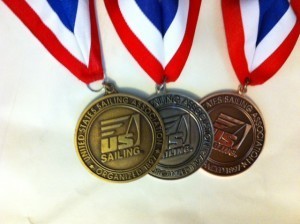
This is the story that just wouldn't let go. Since 1994, it first demanded to be written and then begged to be finished. It grew fussy when I set it aside to publish two books in the Oliver series. And then last winter, it insisted that with just a little more tweaking, it would be ready for its world debut—which must, must, MUST take place before the 2012 Olympics. It didn't care if it sat between two gilded hardback covers or existed as pure pixels, but it wanted to be out in the world—not sitting on my hard disk.
And since I've been letting this story push me around for almost seventeen years, I listened. I took the time and energy I'd been devoting to an agent search and instead educated myself about ebook publishing. Along the way I discovered Smashwords, a free publishing service that offers an easy-to-follow style guide and great technical support.
I also rediscovered the self-confidence of controlling my own publishing destiny.
Using my graphic design skills, I created my own cover—though it took two tries to get it right (read Ebook Cover Design: Telling the Story). The hardest thing about formatting the text was working again in Word, which has never been my favorite program. I also had to stop myself from getting too fancy.
Within a week of my final decision to e-publish, I had a book uploaded that was available in all the common ereader formats. Best of all, before I'd even shared the news with anyone, two downloads were reported!
Now just a few weeks later, with only a few Facebook posts and emails, almost fifty copies have been downloaded across various sites. Last Friday I heard from two different people: "Your book kept me up reading last night!" One competitor even accused me of maliciously timing the release to make it easier to win the weekend regatta—my best compliment to date. And a non-sailing friend posted the following in an Amazon review: "Casey and Spencer are so believable I half expect to run into them at the grocery store."
But now that Game of Sails has left the nest, how do I teach it to fly?
I know the hard work has just begun. But how perfectly wonderful to share my story with readers, and then almost instantly find out that they enjoyed it enough to lose sleep over it.
Have an idea about how to market Game of Sails, or a thought about where it will take me next? Share your thoughts and predictions, and I'll send the best commenter a coupon for a free download.


